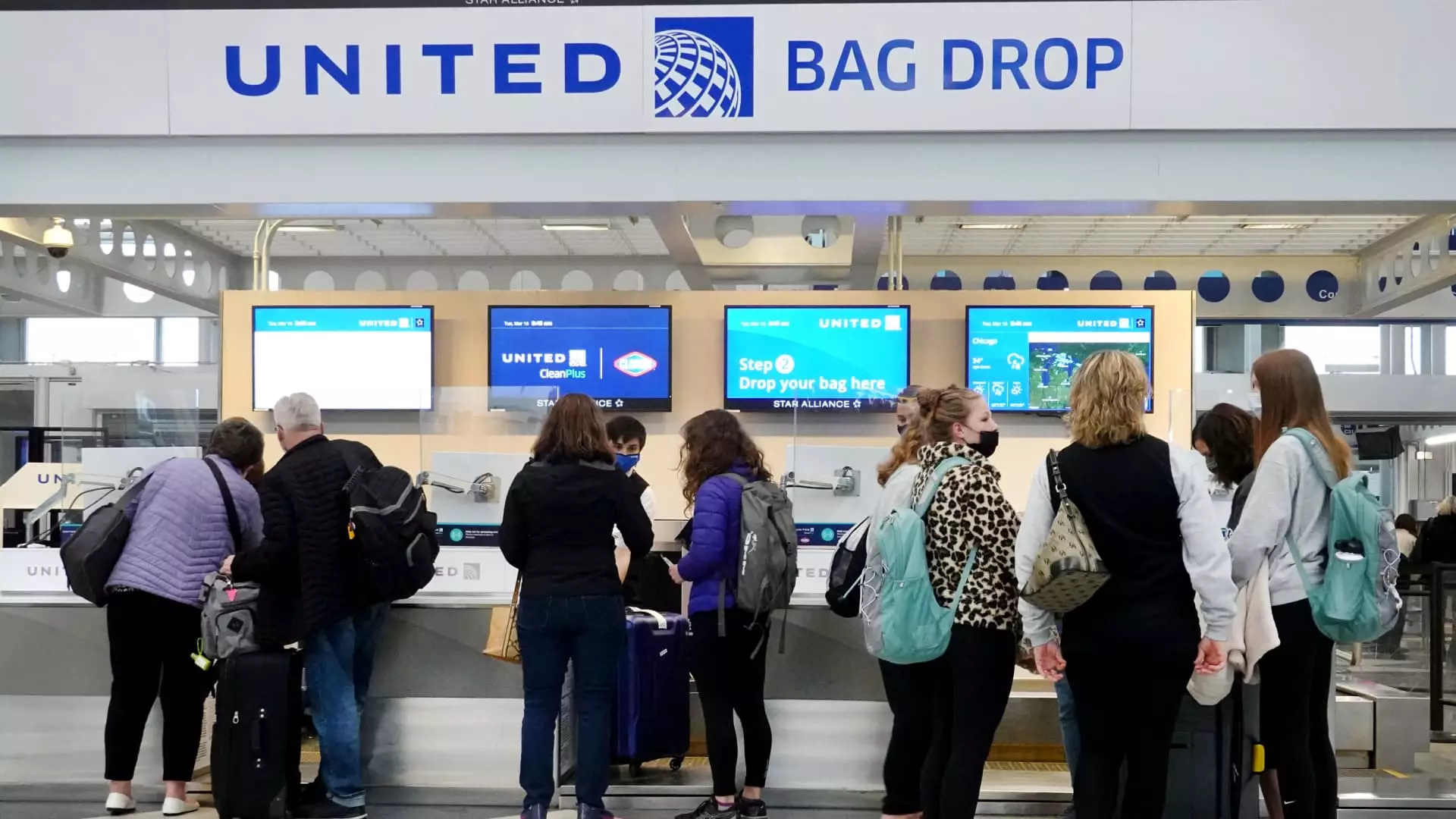The recent trend of airlines raising prices for checked bags is continuing as major carriers like United Airlines, American Airlines, and JetBlue Airways have implemented increased fees for this service. The amount a passenger is charged for checking a bag now depends on when they pay for the service. By checking a bag online in advance, travelers can avoid higher fees that are charged when checking bags at the airport or close to their departure time.
Airlines are actively encouraging customers to pay for their checked bags ahead of their flight as a way to streamline the check-in process and allow employees to spend more time assisting passengers who need additional help. This approach is aimed at getting travelers through the check-in areas faster and to their gates with less hassle. While the increase in baggage fees may seem like an inconvenience to passengers, airlines are justifying it as a necessary step to cover rising costs associated with labor and fuel.
Major airlines like American Airlines have adopted a two-tiered pricing strategy for checked bags, where passengers who book online in advance pay a lower fee than those who opt to pay at the airport. American Airlines customers traveling in coach, for example, will pay $35 to check their first bag for domestic flights if booked online in advance, but that fee increases to $40 if they choose to pay at the airport. This tiered pricing approach is similar to what other airlines like United and JetBlue have already implemented.
There are exceptions to the increased baggage fees, such as customers with certain rewards credit cards, those traveling in premium classes, or elite frequent flyer members who are often allowed to check at least one bag for free on domestic or short international flights. These exemptions are part of the airlines’ efforts to incentivize passengers to pay for the service in advance and avoid last-minute hassles at the airport.
Baggage fees have become a significant source of revenue for airlines, with U.S. carriers generating over $5.4 billion from baggage fees in the first nine months of 2023 alone. This increase in revenue from luggage fees is up more than 25% from the same period in 2019, highlighting the financial impact that checked bags have on airlines’ bottom lines. While passengers may not be thrilled about higher fees, airlines argue that these additional costs are necessary to offset expenses and ultimately improve profitability.
In contrast to other major U.S. airlines, Southwest Airlines stands out by allowing customers to check two bags for free. The carrier’s Chief Operating Officer, Andrew Watterson, emphasizes that this policy contributes to the efficiency of their operations by reducing the number of passengers carrying on oversized bags that can slow down the boarding process. Watterson believes that providing this complimentary service helps maintain customer loyalty and ensures a smoother overall travel experience for Southwest passengers.
The recent increase in checked bag fees by major airlines reflects a broader trend in the industry to offset rising costs and improve operational efficiency. While passengers may need to adjust their travel budgets to accommodate these higher fees, airlines continue to prioritize customer service and overall satisfaction by offering incentives for early payment and exceptions for certain travelers. As baggage fees remain a contentious issue for passengers, airlines are striving to strike a balance between increasing revenue and providing a seamless travel experience for their customers.


Leave a Reply